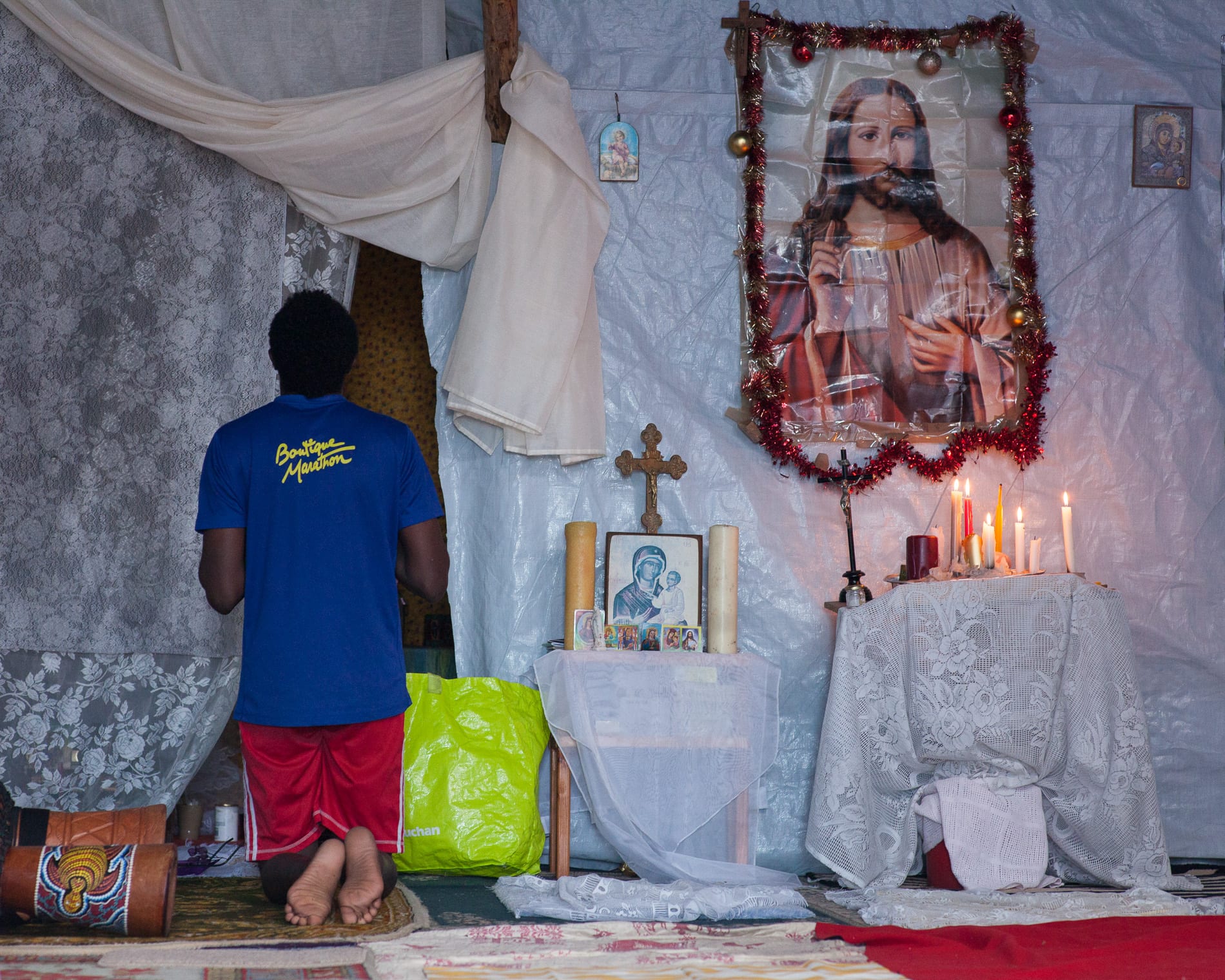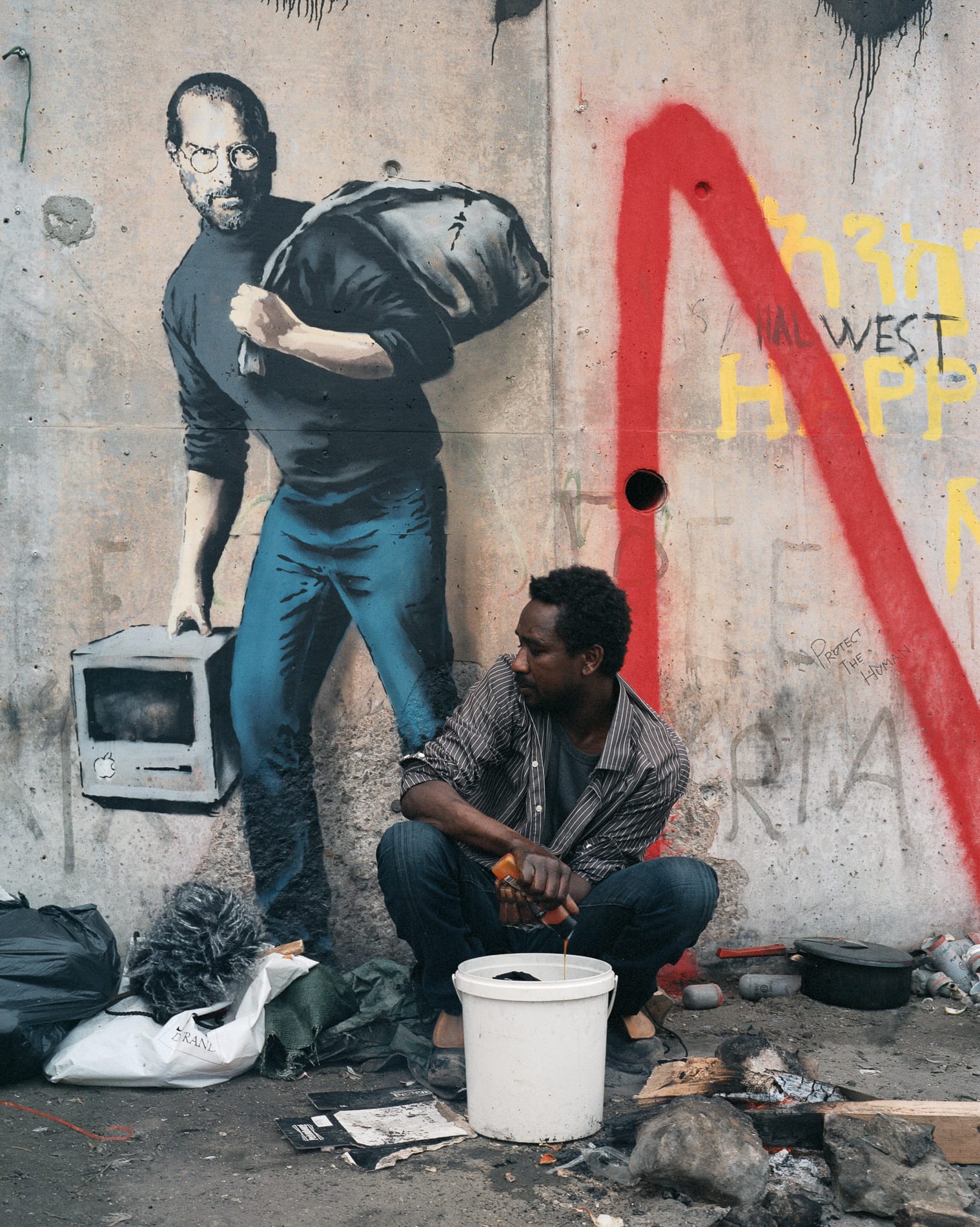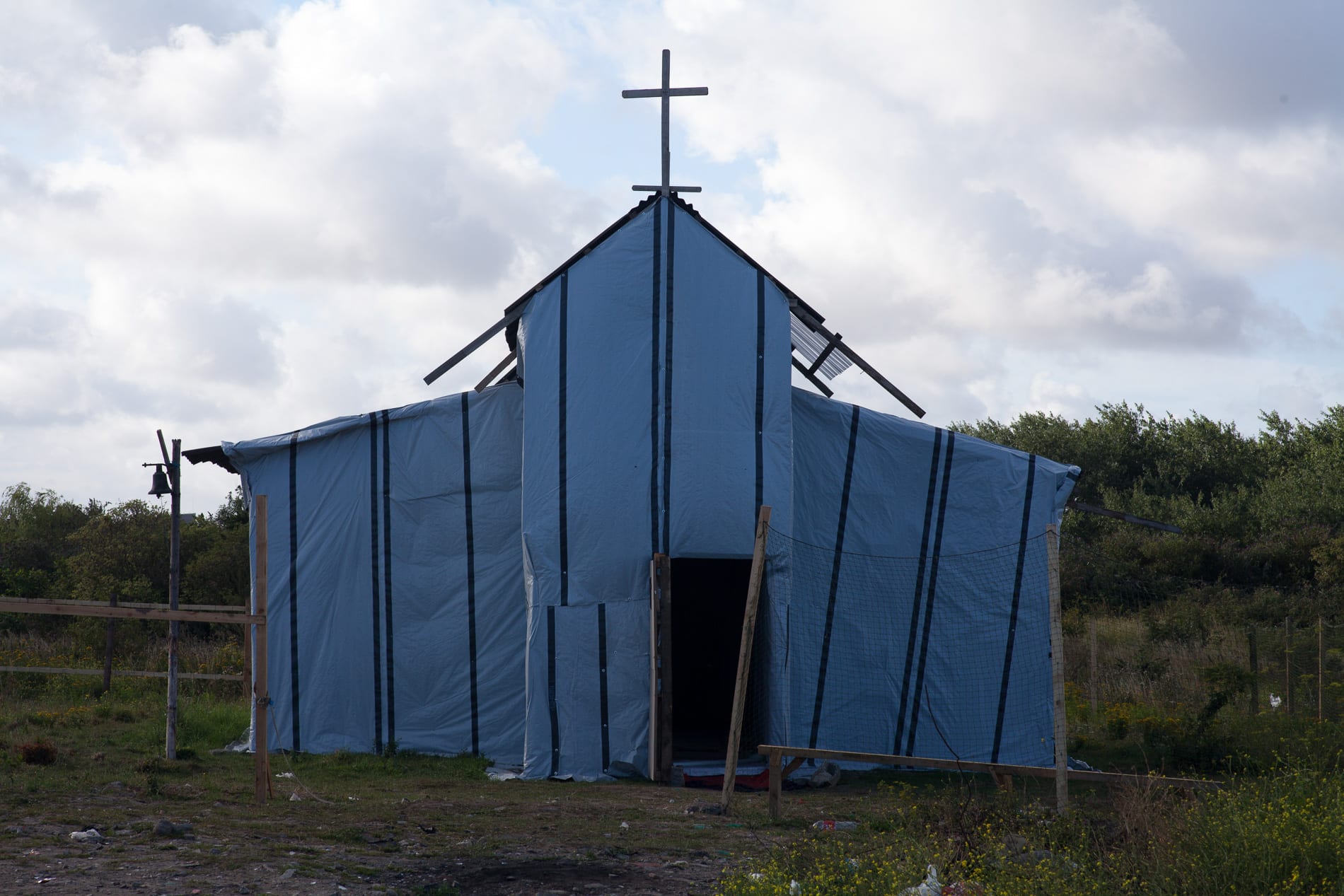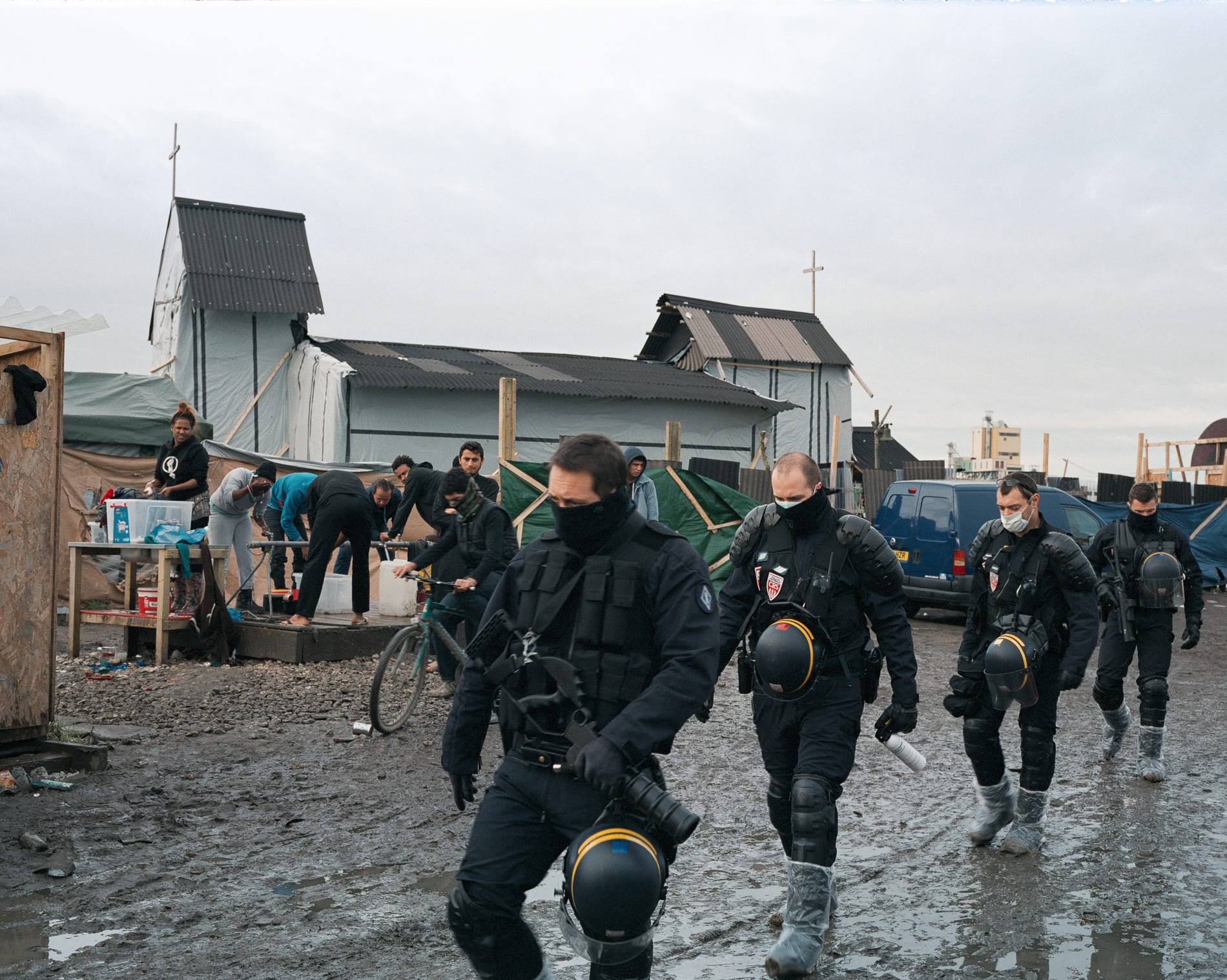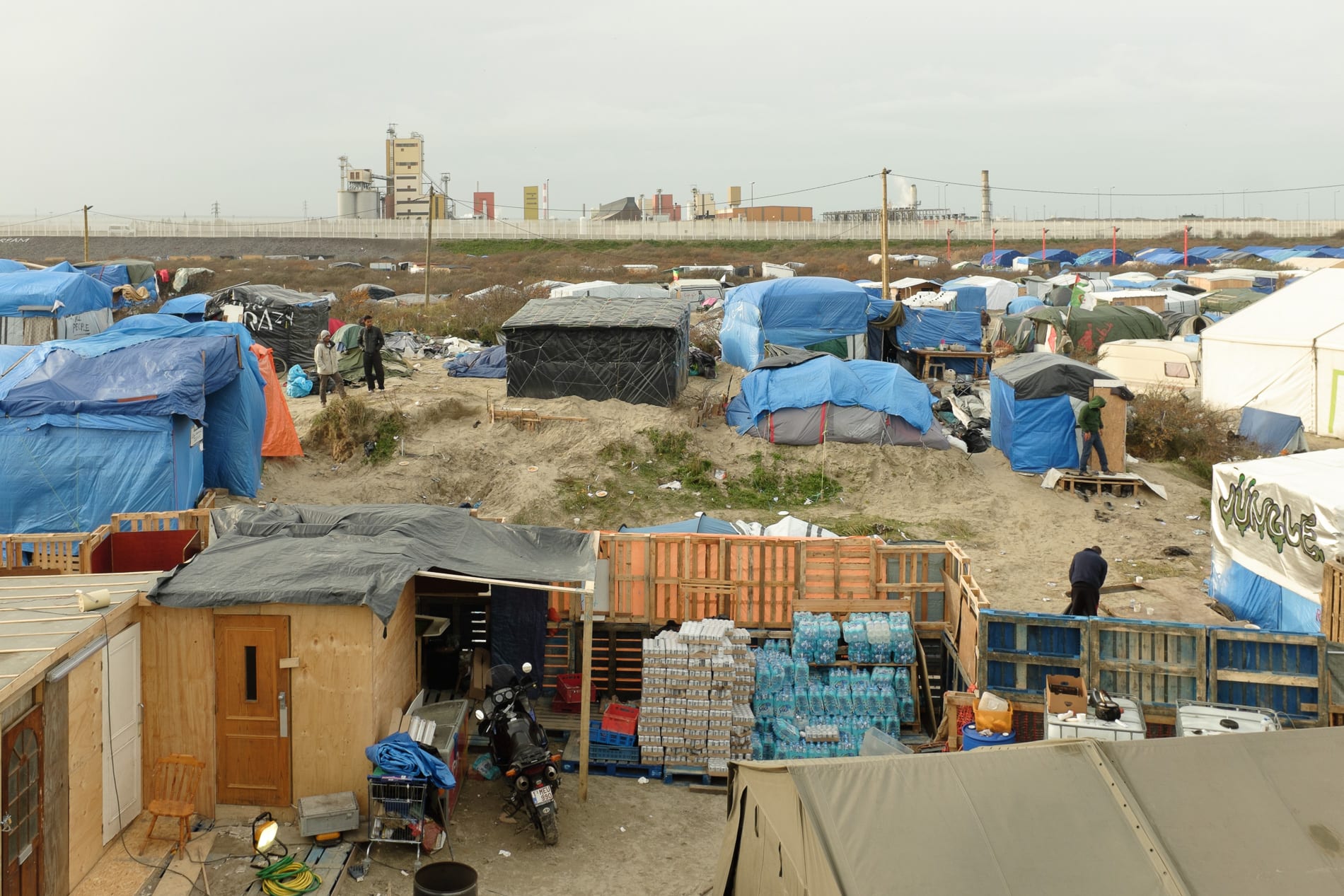The Sun leads with “Anarchy near the UK: Brit Activists behind ferry stampede”. The Daily Mail goes with “Migrants Chunnel Stroll to Asylum in Britain”. The Express gets nihilistic: “No End to Migrant Crisis”.
Just a couple of miles across the English Channel, the Calais refugee camp now known as ‘The Jungle’ has become a focal point of the current refugee crisis. Each day produces new miseries; from refugees freezing in the bitter cold; the deployment of teargas and rubber bullets by French police, and now clashes between refugees and authorities as bulldozers arrive to scrub what’s considered a national embarrassment from the face of the earth.
Austrian photographer Stefano Kleinowitz visited the camp three times in the latter half of 2015, observing as it expanded in size, in population and in the minds of the countries on whose doorstep it lies. BJP asked him about the experience:
“I didn’t know what to expect. I didn’t know if people spoke English, if they’d be friendly, what I would eat or where I would sleep
“Fortunately I quickly made friends with some guys from Afghanistan and Pakistan who run a little shop. We started up a conversation while haggling for cigarettes and they let me stay with them.
“One thing I quickly realised is that there are many photographers here. You see groups of people with huge lenses and multiple cameras around their neck. They’re treated with suspicion, people from the media always say they want to help and then nothing happens, so these groups usually receive the same firm response: ‘no picture’.
“In the beginning the inhabitants saw me as just another spoiled and nosy Western dude who wanted to sell pictures for profit. But once they’d seen me three days and nights in a row, and after we’d drank and smoked together, no-one really cared who I was.
“On my second visit to the camp I handed out prints from my first visit and the subjects were very happy to see them. After this it became easier for me, they didn’t treat me like I wanted to profit from their misery and encouraged me to come back.
“The overall mood in the camp is pretty depressing, it’s a repetitive and boring life. Some people lose hope altogether and start drinking heavily.
“Back home the refugees might have had a house, a car, a family, a job – they’re be used to respect from their communities. Now they have nothing, they live in squalor and have to share toilets with thousands of people.
“Despite this, people are generally extremely welcoming. They offered to cook for me, gave me a place to sleep, gave me cigarettes and hashish and never expected anything in return.
“Everyone lives peacefully in extremely close quarters and, despite the many different nationalities, there’s little tension. People were always interested in me and asked a lot of questions about London and life in the UK. The experience taught me lot.”
See more of Stefano’s photography here.

